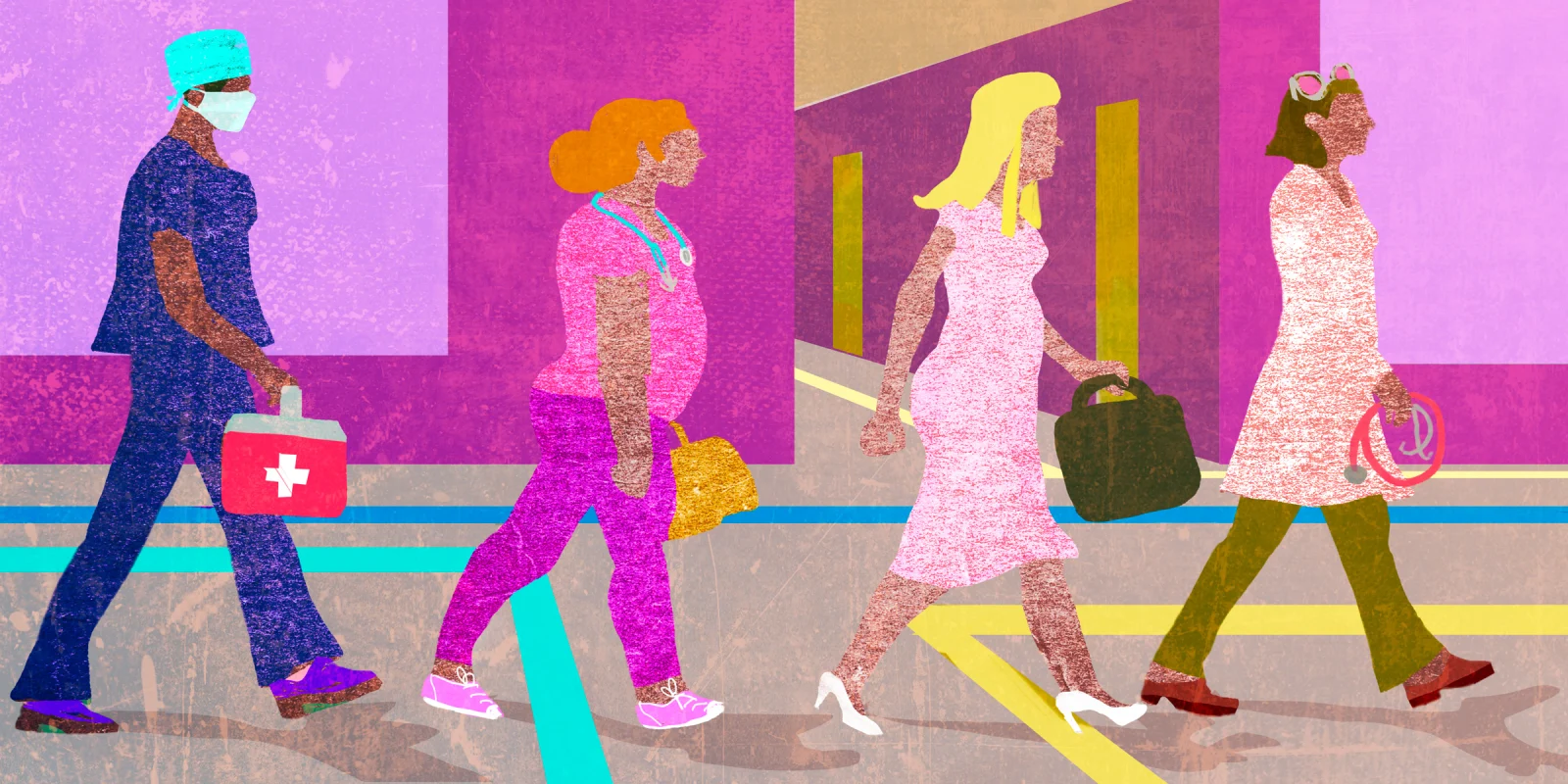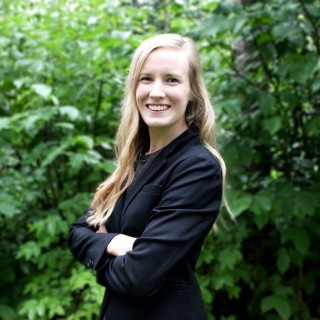I walked into the patient’s room behind my preceptor. I was wearing gray tights, calf-high, black boots, and a business casual black dress. I had my name tag on a lanyard around my neck, clearly identifying me as a medical student/resident and my stethoscope layered on top of the lanyard. My long blonde hair was pulled half back. I wore a mask and no makeup.
The doctor introduced himself to the patient and then clearly stated, “This is Bailey Wolding, she is a fourth-year medical student who is following me today.”
A couple of pleasantries followed and then the patient, an elderly man, looked directly at me and addressed me for the first time. “So, you didn’t want to be a secretary, huh?”
I instantly felt my face go red and had an intense urge to leave the room. It felt vile for this old man to have pointed out my gender so blatantly and to have suggested that, due to my gender, I would be better suited for a different career. I was immediately aware of what I was wearing. Would he have said the same thing if I had been wearing a long-sleeve button-down and pants rather than a dress? Should I have pulled my hair all the way back, rather than have left part of it down across my shoulders? The thought that he had noticed my hair and dress made me nauseous.
“Uh … no,” I stammered as I looked to my preceptor, hoping he would say something.
He did not.
The visit continued and I stood in a corner of the room feeling hot and queasy. The man had been having some melena over the past couple of weeks, so my preceptor had to do a rectal exam. I hoped he would ask me to leave the room during this sensitive portion of the visit. Instead, he asked the patient if it was okay if I stayed in the room.
Again the patient made direct eye contact with me as he said, “Bet you haven’t seen this before, huh?” When I listened to the same patient’s heart, he said, “Be careful with my heart now, okay?” And he grinned, seeming to enjoy making me so uncomfortable.
This was not the first time I had experienced inappropriate comments about my gender delivered by a patient during an appointment. Multiple patients have refused to refer to me as anything other than “the nurse,” notwithstanding clear identification of myself as a medical student. Other male patients have made borderline comments during exams as well, often suggesting that I’ve never seen anything like them before, or requesting that I be particularly gentle with them. I have had more than one professor, speaking in a large lecture hall, inform the room that females need to reconsider their career choice if they ever want to have a family (and the comments are always specifically addressed to females, as if we are the only ones capable of having and raising children).
For the first time in U.S. history, there are more female than male students entering medical school. However, we have a long way to go before female students receive equal treatment, both from those educating them and from their patients. I regret not speaking up when the patient asked me about my choice to not be a secretary. By ignoring his comment, I helped him learn that his remark regarding my gender is OK. But I also wish that my preceptor, a male himself, would have said something. Unfortunately, I suspect my own words in my own defense would not have meant as much to the patient as my preceptor’s words would have, given that the patient already had a biased view of me and my abilities. If my preceptor had stepped up and said, “She is going to make a great doctor,” or, even better, “We don’t appreciate comments like that here,” then perhaps that patient would have learned that his inappropriate comments would not be tolerated.
It doesn’t seem like a hard thing — in fact, it would only take a matter of seconds to correct a patient or preceptor for making a comment that is so out of line. However, recognizing these comments and confronting them is difficult. No one wants to make an uncomfortable situation worse but sometimes, to create change, it is necessary to be uncomfortable. The more we confront the people who make inappropriate comments about women in health care, the greater the chance that these people, whether they are educators or patients, will learn that this type of language is no longer acceptable. The more people that learn that gender-biased language will not be tolerated, the more female students can feel comfortable and safe at school and work. I think that is a change worth being uncomfortable for.
Bailey Wolding was born and raised in Appleton, WI before attending University of Wisconsin – Madison for her undergraduate degree. She graduated in three years with a biology major and then spent one year as a sea kayak and cross country ski guide in Northern Minnesota. She is now in her fourth year of medical school at Des Moines University in Iowa and enjoys camping, canoeing, running, baking bread, gardening, and playing with her dog, Lana. She is a 2020–2021 Doximity Op-Med Fellow.
Illustration by Jennifer Bogartz





